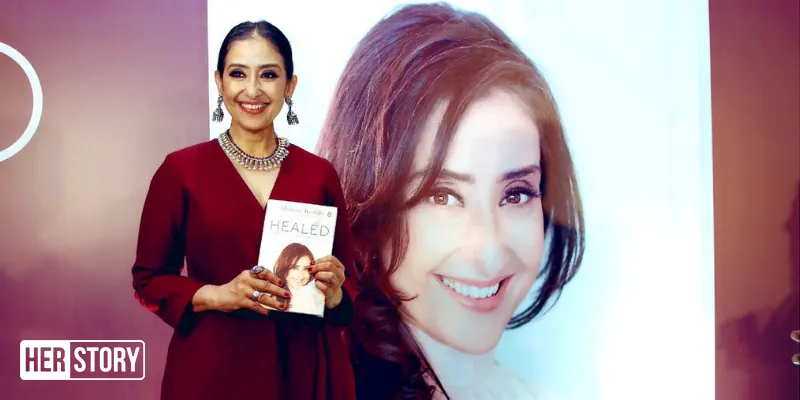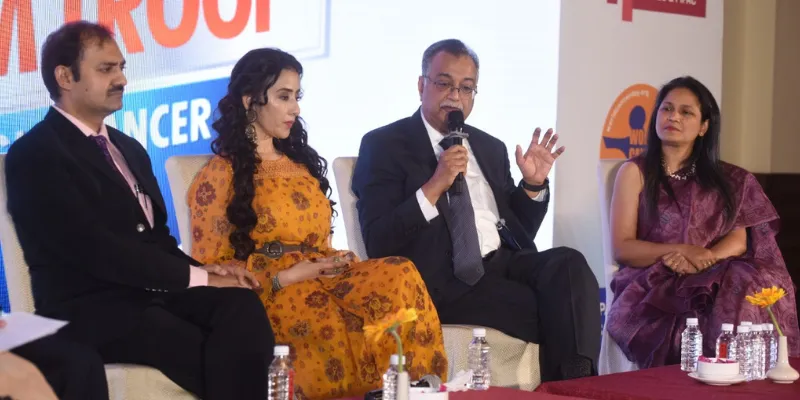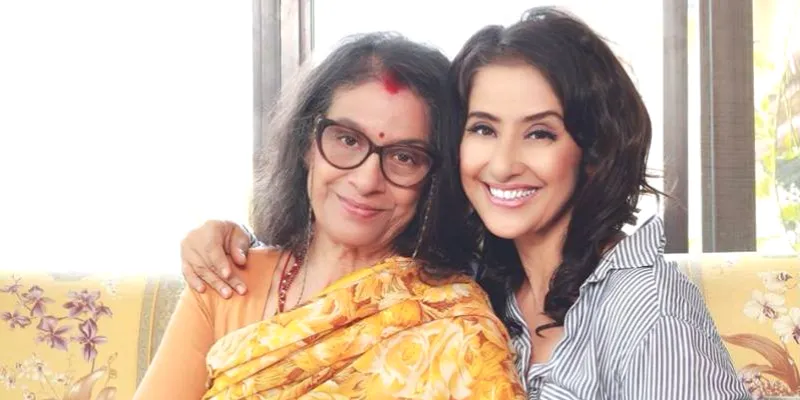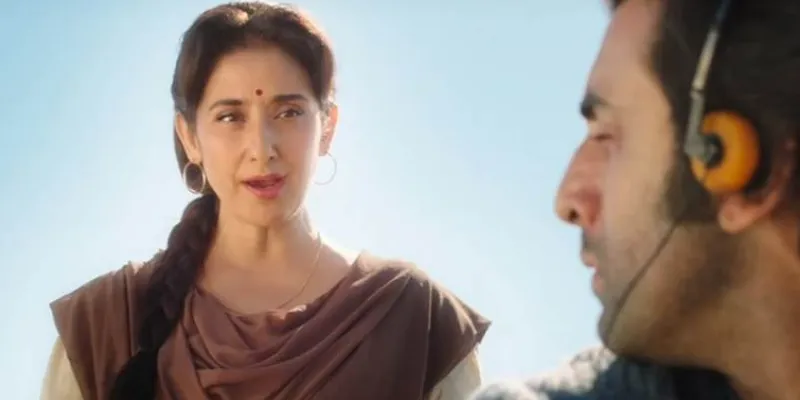It was difficult to break through the stigma of cancer, especially at work: actor Manisha Koirala on life after
In an interview with YourStory, Manisha Koirala explains why she decided to speak about her experience dealing with cancer. She says patients need more voices of hope and reason to see them through the harrowing days after diagnosis.

Cancer. The word manages to evoke sympathy, fear, and a general sense of helplessness, all at the same time. And while stories of hope and survival continue to emerge, the statistics are stacked against this dreaded disease.
The latest 2019 World Health Organisation report states that the survival rate against cancer is 50 percent in India, and that a whopping 17 people succumb to the disease every minute in India.
However, stories of survival and beating the odds warm our hearts and light up the beacon of hope we all hold when our loved ones battle it.
Believe me, I should know. My mom survived Stage 3 cancer, and what kept us all going during those distressing months was hearing such stories of survivors, among them ace cricketer Yuvraj Singh and veteran actor Manisha Koirala.
“When I was diagnosed with cancer in late 2012, I had no idea whether I will come out of it, whether I will live another day. And I used to constantly look out for positive stories so that it would give me some kind of hope. But there was very little positive stories out there because cancer is such a harrowing experience that people don't want to share that; because they have had enough and they want to shut it out. So I prayed and told myself that if I became better, I would share my story and be a reason for hope for people,” 48-year-old Manisha tells YourStory.

Having recently published her memoir, Healed: How Cancer Gave Me A New Life, Manisha, of Bombay and Dil Se fame, hopes to promote the importance of preventive lifestyle and early detection. Her mission, post-recovery, has been to create awareness about the different types of cancer, specifically ovarian cancer, which she was detected with. Given how expensive cancer treatment can be, the actor also wishes to find innovative ways to expand medical care to the remotest areas.
“We need to join hands in every sector; the government alone cannot do it, and neither can the private sector. There are certain types of chemotherapy that are very expensive. We need to find ways to work with the pharmaceutical companies to make cancer treatment more affordable. Screening centres need to be present in even the remotest areas, while treatment facilities are made available in cities,” she adds.
Below is an excerpt of the interview with Manisha, where she talks about her journey through it all - detection, treatment, beating cancer, and now telling the world about it.
Also read: Cancer — it alters your life but it's not the end
YourStory: What really helped you to come to terms with your diagnosis?
Manisha Koirala: It took me a long time to accept it, and finally face whatever was coming. Also, my family was shaken. I myself did not know to read the signs: my stomach was bloated and there was liquid, and I did not know that it was cancer. I didn’t get it checked because I thought it was just gas and acidity. Our body gives us signs and symptoms consistently, and because we are so good at overlooking them, we do not go for a proper medical checkup in time.

I really stress on early detection. Be mindful of your body and see if it is showing some kind of abnormality, something that you don't see every day.
In the West, they catch it early because of awareness, and therefore there are fewer deaths. Here, because it is detected at second, third, or fourth stage, the treatment is not only expensive but also painful and not that effective. That is why it is important for me to talk about cancer.
To all those diagnosed with cancer, I would like to tell them not to lose hope. There are treatments today, brilliant doctors, and amazing hospitals. Being diagnosed with cancer is not a death sentence. There are treatments available. Have faith and be an informed patient.
Also Read: How I survived cancer and built a business with grit and determination
YS: Cancer is difficult enough to deal with, and as a public figure you must have also had reservations about speaking about it openly. Was there a dilemma at all if you should speak about it publicly?
MK: I believe, to each their own. If someone doesn’t want to share their story, we should respect that. But I really wanted to share it because it was a cathartic experience for me. It was also a way to connect with my pain and get a wider range of support. Since I did not have too many references to look at, I decided when I was diagnosed that I would be a voice and bring about awareness.
There are a lot of internal battles and insecurities that one has to overcome, to which one has to say, that no matter what, ‘this is my truth, this is my reality and I would like to speak to the world.’
It was difficult for me to actually break through the stigma attached to cancer, especially at work. Employers are worried if you are capable of working and if you are healthy enough to take on a project, etc.

YS: What are the mental challenges you faced post recovery? You also recently played the role of a cancer victim, that of Nargis Dutt in the movie Sanju.
MK: Dealing with cancer causes much mental strain, and there are plenty of uncertainties one has to overcome. Even after recovery, the doctor tells you that cancer can recur within the three-year period. So it is a tough journey ahead even if the treatment was successful, and one has to face it and live with that reality.
Playing the role of late Nargis Duttji came with a lot of apprehensions. I was scared that playing a cancer patient would bring up all the painful memories of my own suffering. I was worried whether I would be able to handle it. It was, however, a small scene and I did not have to bear through the experience for too long.
But what was truly the most painful journey for me was writing my book. I had to remember every detail and all the painful incidents. That was quite stressful.
Also Read: Meet the 24-year-old doctor who is taking cancer prevention measures to rural India

YS: Forgiveness is a key theme in your book. How does forgiveness help for a person battling cancer?
MK: You should not carry any kind of negative emotions and thoughts because you need to cleanse yourself. If your doctors are looking after your physical body, you as a patient need to work on other areas, such as your emotional and mental spheres. It is our responsibility to lead a happy life. And how happy will you be carrying resentment? For your own sake, you need to move on.
YS: What is your advice for a person when they learn that they have cancer?
MK: Listen to the doctor. Be informed about the type of cancer you have. Study and inform yourself well. Know who are the people who have overcome that kind of cancer. Look after your nutrition, your emotional, and mental being, and be physically active.







